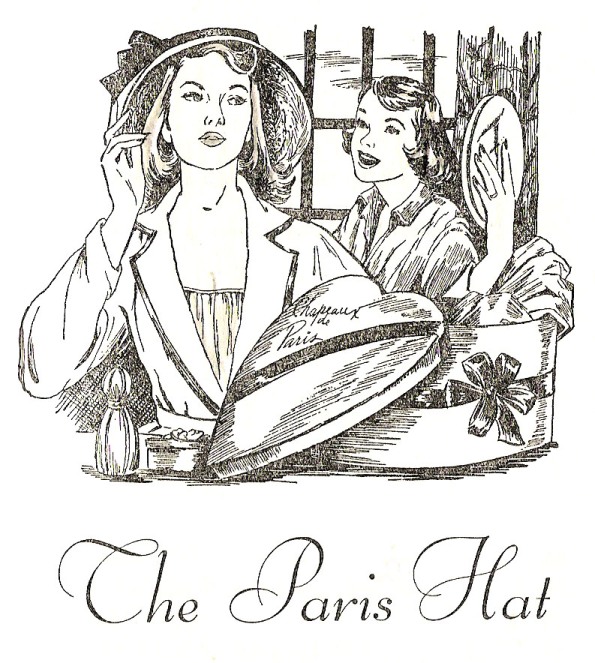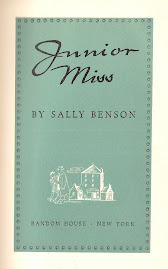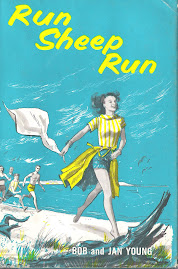 Title: Senior Year
Title: Senior YearAuthor: Anne Emery
Publisher: Scholastic, 1964 (paperback reprint, originally published 1949)
Provenance: Formerly the property of Elena SippSetting: a small town so generic it doesn't even have a name
Fun: plant sitting; babysitting; church youth group; "Captain Midnight" on the radioQuote: In the garden she chose white and yellow chrysanthemums and achieved an arrangement in a low yellow bowl before Jean finished the table. Then she discovered that Jean had used pink placemats and refused to change them just to carry out Sally's color scheme. "All right then," said Sally, with conscious patience, "only it would be nice to have the first dinner at home as perfect as possible."
Senior Year was published in 1949, a fact that becomes obvious when someone asks Sally if she likes her music "smooth" or "hot" (i.e., Bing Crosby or Glenn Miller style.) I have to wonder if the kids who picked up this book in 1964 weren't confused by that, or if the absence of rock'n'roll didn't matter to them. Interestingly enough, this must be the fifth or sixth book in which some of the characters listen to folk music (in this case Sally's parents, who go in raptures over John Jacob Niles.) In other books it's been the teens who listen to it. I know that folk had a vogue in the early 60s, but I sometimes wonder if it isn't the adult writers putting their own tastes onto the characters. In any case, I've never run across a book from this era yet with any appreciation for rock'n'roll.
It's hard to say exactly what the main plot of Senior Year is. There's a Mr. Right and Mr. Wrong, a fast boy called Eddie who takes Sally to a sleazy bar. There's a somber subplot involving a sister who gets rheumatic fever (also probably anachronistic by 1964) and spends months in the hospital. Bills pile up, and at the end of Senior Year Sally is told by her parents that they can't afford college for her unless she goes to the local state university. Sally doesn't object to the educational qualities of this institute, rather:
"Everyone she knew was going away. There wouldn't be anyone left in town. It was the one tragedy she had thought wouldn't happen to her."
Sally cheers up, eventually, when she learns that Mr. Right will be going to college locally, too.
There is a vague stirring behind all this action which seems to suggest that Anne Emery wants Senior Year to be about growing up and thinking of things beyond your own narrow viewpoint -- e.g., giving up the dream of attending a certain college when you realize you little sister may be crippled for life. But it doesn't really feel like that. It feels more like settling for less and pretending you like it.
Which, as a concept, was also pretty anachronistic by 1964.
It's hard to say exactly what the main plot of Senior Year is. There's a Mr. Right and Mr. Wrong, a fast boy called Eddie who takes Sally to a sleazy bar. There's a somber subplot involving a sister who gets rheumatic fever (also probably anachronistic by 1964) and spends months in the hospital. Bills pile up, and at the end of Senior Year Sally is told by her parents that they can't afford college for her unless she goes to the local state university. Sally doesn't object to the educational qualities of this institute, rather:
"Everyone she knew was going away. There wouldn't be anyone left in town. It was the one tragedy she had thought wouldn't happen to her."
Sally cheers up, eventually, when she learns that Mr. Right will be going to college locally, too.
There is a vague stirring behind all this action which seems to suggest that Anne Emery wants Senior Year to be about growing up and thinking of things beyond your own narrow viewpoint -- e.g., giving up the dream of attending a certain college when you realize you little sister may be crippled for life. But it doesn't really feel like that. It feels more like settling for less and pretending you like it.
Which, as a concept, was also pretty anachronistic by 1964.











